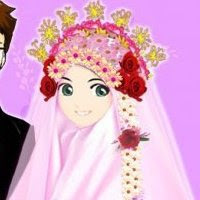English/Japanese Basic Terms Translation
Since only few of you are speaking and reading Japanese fluently, I thought it would be a good idea to give you some basic translation of the main Japanese terms that you may found in some of the stories on this website.
Aaa (Aa) = General sound of agreement. Say, well, er, oh, ah
Ahou = "Moron"
Ai = "love"
Ai Shiteiru = I love you
Aisuru = "beloved"
Anata = "You", usually used between close relationships, meaning 'dear'
Aniki = older sibling, usually used for a brother, particularly for the older of a set of twins.
Anou = hesitation sound, basically "Ummm..."
Ano = Say, well, er
Arigato = "Thank you"
Asahi = Morning sun
Atashi = female "I", equivalent to 'boku'
Baka = "idiot"
Bishonen or bishounen = literally, beautiful man
Boku = male "I", equivalent to 'atashi'
-chan = an affectionate honorific, used on very young children, or a significant other.
Che = essentially the same level of swearing as "shit"
Ch'kushou = "God damn it"
Chotto = a little bit
Daijobu or daijoubu = "It's/I'm alright"
Daijouba desu ka? Ah. Daijoubu = Are you Ok? Yes, I'm OK
Dai suki = I love you
Dare (Dare da) = "who"
Demo = "but"
Doitashimashite = "It was nothing"
Doushite = "why"
Doushio = "What now?" or "What do I do now?"
Ecchi = "pervert"
Egao = Smile, smiling face
Eto = Er, let me see
Ganbatte = "Good luck!" or "Do your best!"
Gi = traditional outfit for fighting.
Gomen = "I'm sorry"
Gozaimasu = Uh.. not sure about this one. It comes at the end of sentences.
Hai = "Yes"
Hanaste = "Let go!" Forceful.
Hansei = Reflection, meditation
Heika = "Your Highness"
Hentai = "pervert", stronger than 'ecchi'
Hidoi = Cruel, terrible
Higure = Dusk, sunset, twilight
Hime = "Princess", usually followed by 'san' or 'sama'
Hontou = "really"
Iie (Iya) = No
Irasshaimase = Welcome
Itai (Ite) = Painful (ouch)
Itsumo = Always
Iya da, dame, yamete, hanase = No, no, stop, let me go
Ji = "grandfather" or "uncle", usually preceded by 'o' and followed by 'san'
Jo=chan = something you might call a younger girl you don't know
Kaa = "mother", usually preceded by 'o' and followed by 'san'
Kagayaku = To shine
Kawaii = "cute"
Ki = life force, internal energy
Kisama = "bastard" or You (vulgar)
Kitto = Surely
Koi = Love
Koibito = Lover, sweetheart
Kokoro = "heart", "mind" or "soul"
Kore kara zutto itsumademo = Always and forever
Korosu = To kill
Kowai = "scary"
Kudasai = "Please"
-kun = honorific for a young boy or inferior worker
Kuso (K'so) = Shit
Kyoudai = "brother"
Mahou = "magic"
Masaka = "Impossible" or Never
Matte = "wait", imperative form
Minna = "everyone"
Nanase = Be sensible
Nanda = What is it
Nani = "what"
Nasai = adds formality, ex. "Gomen nasai"
Ne = at the end of a sentence, "isn't it?". At the beginning of a sentence, a general attention=getting noise.
Nee = older sister, usually preceded by 'o' and followed by 'san'
Nii = older brother, usually preceded by 'o' and followed by 'san'
Ningen = "human"
Ninmu = "mission"
Ohayou (Ohayo) = "Good morning"
Oi = Hey
Ojii = "Prince", usually followed by 'san' or 'sama'
Ojou = "Queen" usually followed by 'san' or 'sama'
Okaeri = Welcome home
Omae = "You", very rough
Omae wa ore no mono da = You belong to me
Onegai = "Please"
Onna = "woman"
Oou = "King", usually followed by 'san' or 'sama'
Ore = male "I", rough.
Oyasumi = "Good night"
Owari = "The End"
-sama = high honorific, reserved for gods, emperors, etc.
-san = general honorific, equivalent to "Mr." or "Ms."
-sensei = honorific used for teachers and doctors.
Saru = Singe
Shimatta = equivalent of "damn"
Soka = "Is that so?"
Sugoi = Amazing, wonderful, Cool, Excellent, etc.
Sumimasen = "Excuse me"
Tabidatsu = Depart/departure
Teme = very rude "you"
Tou = "father", usually preceded by 'o' and followed by 'san'
Tooi Yoake = Far off Dawn
Tsuki = "Moon"
Wai = "Yay!"
Wakarenai, wakarimasen = "I don't know" or "I don't understand"
Watashi = polite "I", either sex
Watakushi = very polite "I", either sex
Yamete = "Stop!" Imperative form
Yaoi = male/male relationships
Yare yare = "Well, well"
Yaro = Rascal, i.e Bakayaro
Yoroshiku = literally, "Please look favorably upon me". Tradition when greeting someone for the first time
Yoshe or yoshi = "All right!"
Yume = Dream
Zutto = Forever



